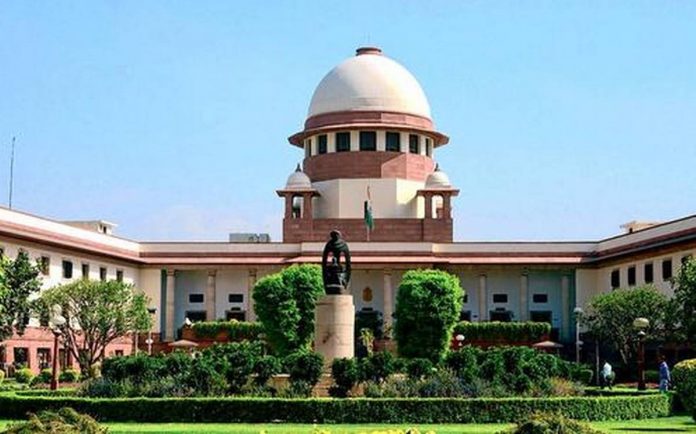The Supreme Court has said, once the rejection of the application of voluntary retirement is held to be bad in law, all other subsequent proceedings of departmental inquiry will be null and void and shall be non est, as after the Voluntary retirement, there shall not be an employer-employee relationship.
A three-judge bench headed by Justices Ashok Bhushan, R. Subhash Reddy & M.R. Shah has upheld the order passed by the Delhi High Court which had directed the Indian Bank/Employer to pay all the retrial benefits of the Employee in accordance with Pension Regulations, 1995. The High Court had also quashed and set aside the rejection letter of bank by which it had denied the voluntary retirement and all the other benefits to the employee.
In the present case the respondent/employee was transferred and posted as Chief Manager, Colombo Branch, Colombo by the employer in 1998. Later he was further transferred to Defence Colony Branch, New Delhi as Chief Manager. Meanwhile his son got sick and he applied for 30 days’ leave to visit London as his son was admitted in the hospital. Thereafter, the employee wrote to the employer seeking extension of leave. The employer refused the application for leave as well as the application for extension of leave and directed the employee to report on duty at Defence Colony Branch, New Delhi.
Further, the employee submitted an application seeking voluntary retirement from the services of the employer and requested for waiver of three months’ notice, as required under Regulation 29 of the Indian Bank Employees Pension Regulations, 1995 that was also rejected by the employer.
The counsel for applicant/bank has submitted before the Supreme Court that the High Court has erred in holding that the employee was, in fact, transferred to the foreign branch and was not sent on deputation. The respondent/employee was on deputation at the overseas branch at Colombo at the relevant point of time and therefore as per Regulation 29(1) of the Pension Regulations, 1995, the employee was not eligible to apply for voluntary retirement unless after having been transferred or having returned to India, he has resumed charge of the post in India and has served for a period of not less than one year.
Opposing the contentions of the counsel for applicant/bank, Shri Sanjeev Kumar, learned Advocate appearing on behalf of the respondent/employee has submitted that the Division Bench of the High Court has rightly interpreted Regulation 29 and has rightly considered that the bar under Regulation 29(1) shall not be applicable insofar as Regulation 29(1) is concerned, as the employee was not on deputation at Colombo Branch but was on transfer.
After going through all the facts mentioned and arguments made the Supreme Court has observed that,
“On a fair reading of Regulation 29, it emerges that an employee is entitled to apply for voluntary retirement after he has completed 20 years of qualifying service. He can apply for voluntary retirement by giving notice of not less than three months in writing to the appointing authority (Regulation 29(1)). And the application of the employee submitting the voluntary retirement application with a request for curtailment of notice of three months was absolutely in consonance with Regulation 29.”
Also Read: Delhi High Court quashes FIR against student for carrying live cartridge in his check-in luggage
The court has further held that the request made by the employee for curtailment of the period of notice of three months was required to be considered by the appointing authority on merits and only in a case where it is found that the curtailment of the period of notice may cause any administrative inconvenience, the request for curtailment of the period of three months’ notice can be rejected.


